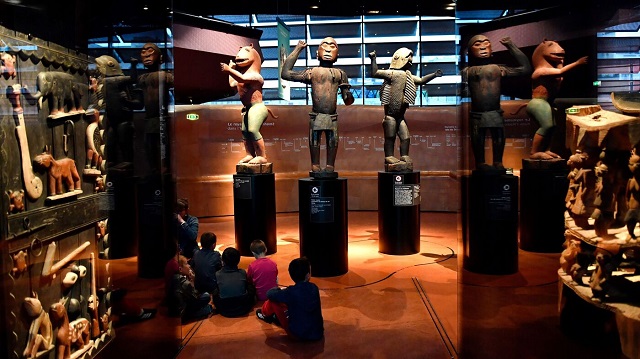
Nairobi, Kenya | Xinhua | The United Nations Educational, Scientific and Cultural Organization (UNESCO) said Wednesday the illicit trafficking in cultural property harms Africa’s identity.
Hubert Gijzen, UNESCO Regional Director for Eastern Africa said in a speech read on his behalf by Misako Ito, the Regional Adviser for Communication and Information for Africa at UNESCO that illicit export of physical cultural objects has been practiced throughout the history of the continent in various forms and with different intentions.
“The scourge threatens, in the long run, the very identity, history, and memory of the African peoples,” Ito said in Nairobi, Kenya’s capital, during a capacity-building workshop on the fight against illicit trafficking of cultural property in eastern Africa.
The five-day forum aimed to raise awareness and build capacity on the importance of the 1970 Convention on the Means of Prohibiting and Preventing the Illicit Import, Export, and Transfer of Ownership of Cultural Property.
Ito called on all stakeholders to join forces in the protection of Africa’s rich heritage because they represent unique instruments of cultural diplomacy.
She observed that certain works of art and culture play a critical role in the history of communities from where they were taken and the severing of the cultural property deprives people of their heritage because it is unjust for the symbols linking them to be denied, and for the roots that have taken hold to be severed.
According to Ito, eight countries in the Eastern Africa region including Comoros, Djibouti, Ethiopia, Madagascar, Mauritius, Rwanda, Seychelles, and Tanzania have ratified the 1970 Convention on the illicit transfer of cultural objects.
Peninah Malonza, Kenya’s Tourism, Wildlife and Heritage Cabinet Secretary said that the COVID-19 pandemic worsened illicit trafficking in cultural property in the Eastern Africa region and increased the challenges that now include large-scale looting and illegal online sales.
Malonza said that Kenya is keen to ensure that it puts in place robust preventive measures and commits to engaging in inter-regional and international cooperation to eliminate the illicit trafficking of cultural objects.
She noted that Kenya is also fast-tracking the ratification of the 1970 Convention on the illicit transfer of cultural objects so that it can join other state parties to the agreement.
Malonza said the ratification of the convention will further reinforce the role and contribution of culture as an enabler for the achievement of the UN Sustainable Development Goals.
 The Independent Uganda: You get the Truth we Pay the Price
The Independent Uganda: You get the Truth we Pay the Price



